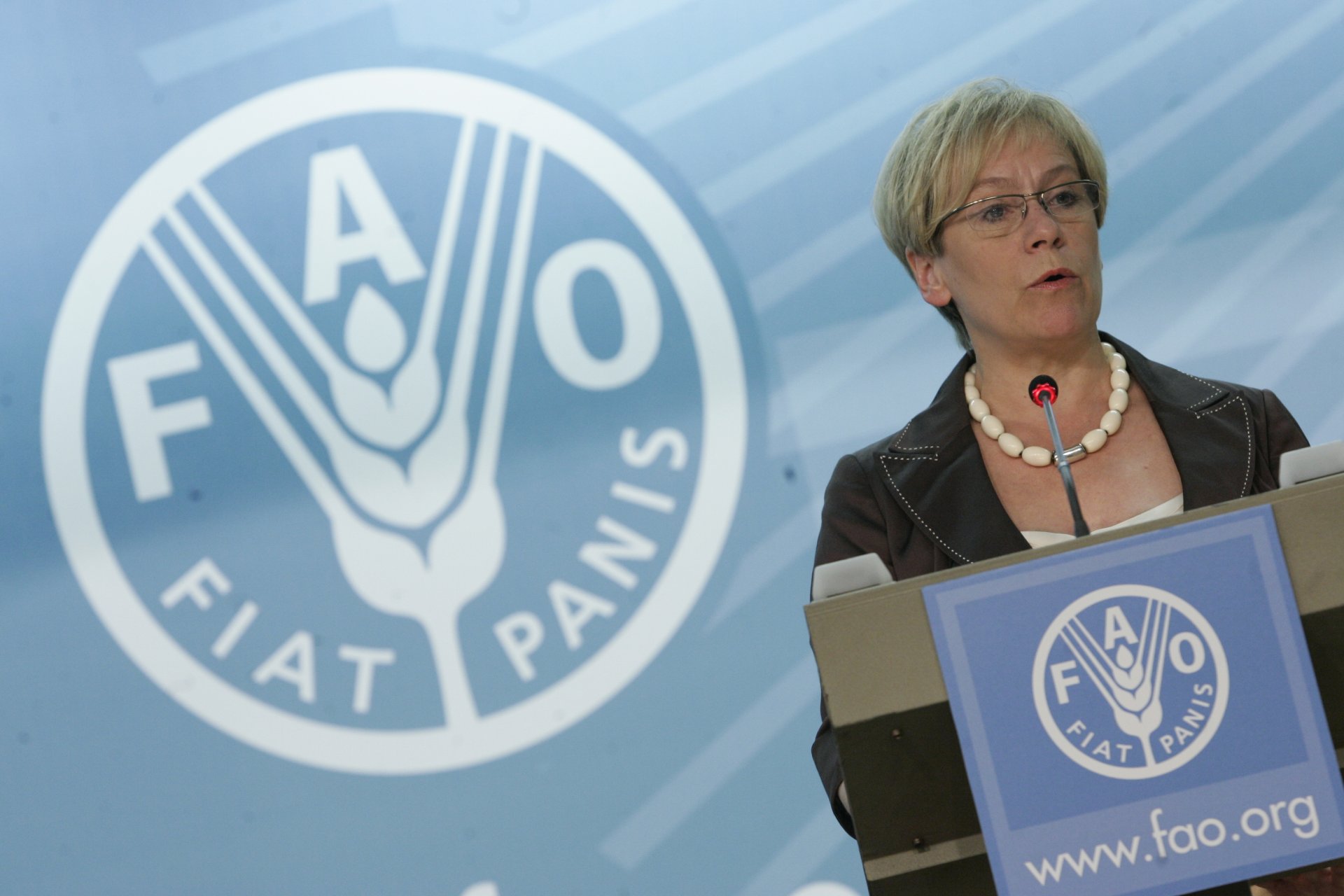Leiðtogafundur Matvæla- og landbúnaðarstofnunar Sameinuðu þjóðanna í Róm
Address of H. E. Ingibjörg Sólrún Gísladóttir,
Minister for Foreign Affairs and External Trade of Iceland,
At the High Level Conference on World Food Security:
The Challenges of Climate Change and Bioenergy,
Rome3 – 5 June 2008
Ladies and Gentlemen
The rising price of food has an impact on all families around the world. Failure to address this properly would cause a major reversal for development and have considerable implications for peace and security across the globe. Failure to act is therefore not an option.
Climate change, rising food prices and increased demand for energy threaten economic and political stability in many vulnerable areas. This complex situation requires strong leadership and coordination. The initiative and involvement of all relevant parts of the United Nations system will be essential.
Iceland therefore welcomes wholeheartedly the initiative taken by FAO here today.
- o -
Coming from a food producing and exporting country, which also relies heavily on food imports from all corners of the world I wish to emphasize the importance of free trade for food security.
My Government has made a determined effort to make free trade agreements, bilateral and multilateral, which take into account Parties’ diverse level of development. It must be ensured that the developing countries are active participants in the global food trade, and furthermore that within the framework of WTO negotiations the developing countries gain from trade liberalisation. We, who now belong to the so-called developed world must also bear in mind the market protection of our formative years, and respect today the disparities between different parts of the world.
Commercial market forces, such as supermarket chains, now play a larger role than ever in contributing to Food Security. The private sector needs to shoulder its responsibilities and act in a sustainable manner. This is especially important, since increased investment in agriculture is of paramount importance in feeding the world.
- o -
Every country and each nation has to revise and adapt to the new challenges of our age. Iceland has concentrated its efforts mainly in three fields:
1) Fisheries management and utilization of living marine resources,
2) active development of renewable energy sources,
3) soil conservation technology.
I wish to point out that my country has progressed from being one of the poorest in Europe at the beginning of the century and defined as a developing country until the seventies to being number ONE on the annual UNDP Human Development Index. We acknowledge what it took to bring about such a transformation, and we hope to share some hard learned lessons and apply know-how wherever it is welcomed and wished for.
There are vast untapped geothermal resources around the world. In close to one hundred countries, geothermal energy is found in some form or another. To give you an example: The current production of geothermal power in the vast East African Rift Valley area is only 150 MW. The potential, however, is estimated close to 14 thousand MW. My Government promotes the utilization of geothermal energy through the UN University Geothermal Training Programme, in which almost 400 people from over 40 countries have participated.
The rising demand for energy must be met with the development of alternative energy resources that are renewable and sustainable. Agricultural food production capacity should not be converted into producing biofuel. It would be a short-sighted answer to the problem of carbon emissions.
Land degradation, to an extent, can be reversed. Iceland has over 100 years of experience in reclaiming land from erosion through the oldest Soil Conservation Service in the world. Last year, a new training programme on land restoration was initiated in Iceland with the objective of becoming a part of the United Nations University system within a few years.
Fish is one of the most valuable sources of nutrition and income for developing countries. Ninety-five per cent of those who live from fisheries are in the developing world and a billion people depend on fisheries for their main intake of protein. The share of the developing countries in the export of fish and fishery products is over 50%, with the net income of more than 20 billion USD. The fact that the earnings from these products for the developing countries exceed the foreign exchange revenues earned from any other major traded food commodity demonstrates the high value of fishery products. We have cooperated with many developing countries in building up their capacity in fisheries through the UN University Fisheries Training Programme in Iceland.
- o -
Ladies and Gentlemen
The international community is increasingly aware of the gender aspect of climate change. The poor will be most affected by climate change and 70 % of the world’s poor are women. The effect of climate change on gender equality and women’s empowerment could be profound, given their central role in food production, and could diminish considerably the progress we have made so far in securing gender equality. We need to strengthen the role of women in the decision-making process on sustainable development, including climate change. Women need to have equal access to training, credit and skills programmes to ensure their full participation in climate change initiatives.
Ladies and Gentlemen,
The year 2008 has already become the point in time when the world community realised fully the fundamental urgency of ensuring food security around the planet. One day we may count our blessings and be thankful for the wake-up call we got in 2008 - if we indeed prove to be able to make use of it.
This conference has already succeeded by deepening our understanding of the complex linkages between hunger and climate change and between effective food production and sustainable harnessing of resources. Iceland aims to be a responsible member of the world community, a diligent policy applicator and a supporter to those who need and deserve a new deal in the globalised economy.

